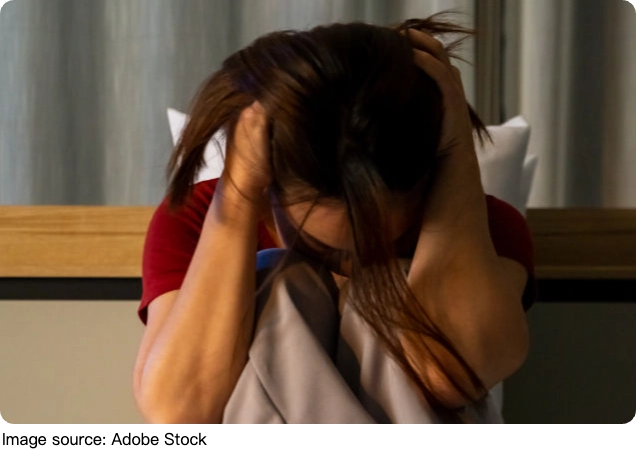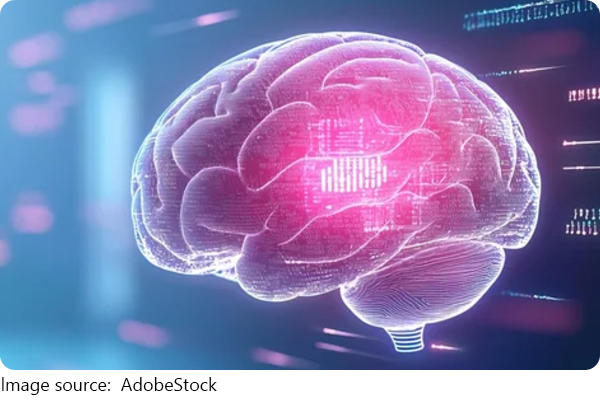Sleep Disorder: Mental?

Sleep is a cornerstone of mental well-being, and disruptions in sleep patterns can lead to significant psychological consequences.
While most people are aware that sleep affects physical health, fewer realize the profound impact sleep disorders can have on mental health.
Sleep disorders, such as insomnia, sleep apnea, and restless leg syndrome, not only disrupt rest but also exacerbate or even trigger mental health conditions like depression, anxiety, and cognitive decline.
Dr. Lydia S. Harris, a leading psychiatrist specializing in sleep-related disorders, notes, "Sleep is not just a passive state of rest. It plays an active role in regulating mood, stress responses, and cognitive function. Disruptions in sleep can create a feedback loop, worsening both sleep quality and mental health."
Common Sleep Disorders and Their Mental Health Consequences
1. Insomnia: The Silent Contributor to Mental Health Struggles
Insomnia is one of the most common sleep disorders, characterized by difficulty falling asleep or staying asleep despite having the opportunity to rest. Over time, insomnia can significantly impact daily functioning and emotional regulation, leading to heightened vulnerability to mental health issues.
Mental Health Impact:
Depression: Chronic insomnia is closely linked to an increased risk of developing depression. According to a 2024 study published in the Journal of Clinical Psychiatry, nearly 90% of individuals with major depressive disorder report sleep disturbances. Insomnia often precedes the onset of depression and can worsen its symptoms, making treatment more challenging.
Anxiety: People with insomnia are also at greater risk for developing anxiety disorders. The constant struggle to fall asleep and the fear of not getting enough rest can exacerbate feelings of worry and unease, creating a vicious cycle.
2. Sleep Apnea: A Major Contributor to Cognitive and Emotional Impairment
Sleep apnea, particularly obstructive sleep apnea (OSA), occurs when the airway is repeatedly blocked during sleep, leading to frequent awakenings. Though often associated with physical symptoms like snoring and choking, its impact on mental health is profound.
Mental Health Impact:
Cognitive Decline: Studies have shown that untreated sleep apnea is linked to cognitive decline and dementia, particularly in older adults. Dr. Jonathan R. Feldman, a neurologist, states, "The lack of oxygen during sleep disrupts brain function, leading to issues with memory, attention, and decision-making. Over time, this can contribute to neurodegenerative diseases such as Alzheimer's."
Mood Disorders: Sleep apnea is associated with mood disorders such as depression and irritability. The frequent interruptions in sleep prevent individuals from reaching the restorative stages of rest, impairing emotional regulation and increasing the risk of mood swings.
3. Restless Leg Syndrome (RLS): The Overlooked Sleep Disorder
Restless Leg Syndrome (RLS) is a neurological condition that causes uncomfortable sensations in the legs, often leading to an irresistible urge to move them. This can result in significant sleep disruption, as individuals may struggle to fall or stay asleep due to the discomfort.
Mental Health Impact:
Depression and Anxiety: The constant sleep disruption caused by RLS has been shown to increase the risk of developing depression and anxiety. A 2023 study published in Sleep Medicine Reviews revealed that individuals with RLS were twice as likely to experience symptoms of depression compared to those without the disorder.
Chronic Fatigue: The persistent lack of quality sleep contributes to chronic fatigue, which can impair cognitive function, exacerbate mood swings, and make individuals more susceptible to stress and anxiety.

The Biopsychosocial Model: How Sleep Disorders Affect the Brain
The relationship between sleep and mental health is complex and can be understood through the biopsychosocial model. This framework suggests that biological, psychological, and social factors all interact to influence the development and progression of mental health disorders associated with sleep disturbances.
Biological Factors: Sleep disturbances can lead to neurochemical imbalances that affect mood regulation. For example, disruptions in sleep can affect serotonin and dopamine levels, which play critical roles in mood and cognitive function. Additionally, chronic sleep deprivation can impair the brain's ability to process emotions and memories, leading to a heightened emotional response to stress.
Psychological Factors: The stress of experiencing sleep disruptions can itself lead to mental health challenges. For instance, individuals who suffer from insomnia may begin to develop a fear of sleep, which further exacerbates the problem. This psychological distress often leads to heightened anxiety and depressive symptoms.
Social Factors: Chronic sleep disorders can affect relationships, work productivity, and social engagement, leading to social isolation and stress. This isolation can, in turn, worsen the symptoms of depression and anxiety, creating a cycle of deterioration in both mental health and sleep quality.
The Role of Sleep in Treatment and Recovery
Addressing sleep disorders is essential for effective treatment of mental health conditions. Proper treatment can not only improve sleep but also lead to better outcomes for mental health.
1. Cognitive Behavioral Therapy for Insomnia (CBT-I)
CBT-I is considered the gold standard for treating insomnia. This structured program helps individuals identify and change the thoughts and behaviors that interfere with sleep. Studies have shown that CBT-I is highly effective in improving sleep quality and reducing symptoms of depression and anxiety.
Dr. Michael G. Miller, a clinical psychologist, states, "CBT-I targets the root causes of insomnia and has shown remarkable results in treating both sleep disturbances and their associated mental health issues."
2. Continuous Positive Airway Pressure (CPAP) for Sleep Apnea
For individuals with sleep apnea, CPAP therapy remains the most effective treatment. This machine delivers a continuous stream of air through a mask, keeping the airways open during sleep. Research has demonstrated that CPAP therapy not only improves sleep but also reduces the risk of cardiovascular problems and improves mood and cognitive function in individuals with sleep apnea.
3. Medications for Restless Leg Syndrome
While lifestyle changes and non-medication interventions are often recommended for RLS, certain medications, such as dopamine agonists, can be prescribed to help manage symptoms. By alleviating the discomfort associated with RLS, these treatments can improve sleep quality and reduce the psychological burden of the condition.
A Holistic Approach: Integrating Sleep Management into Mental Health Care
Integrating sleep management into mental health treatment is crucial for achieving optimal outcomes. Healthcare providers should assess and address sleep disorders as part of the treatment plan for individuals with mental health issues. Dr. Linda K. Jacobs, a psychiatrist, emphasizes, "Without proper attention to sleep, we may be missing a significant factor that could help patients achieve lasting mental health recovery."
Moreover, individuals who struggle with mental health conditions should prioritize sleep hygiene practices, such as maintaining a regular sleep schedule, creating a sleep-friendly environment, and avoiding stimulants like caffeine or nicotine in the evening.
The impact of sleep disorders on mental health is undeniable. From cognitive decline to mood disorders, sleep disturbances can have a profound effect on psychological well-being. Understanding the complex relationship between sleep and mental health, along with addressing sleep disorders early, is essential for improving outcomes.
With integrating sleep management into mental health care, healthcare providers can help individuals achieve both restful sleep and better mental health.
-
 Hypertension: Global Crisis!Are We Ignoring The Hidden Danger? Hypertension's Growth Is Out of Control! How Will It Affect Us?
Hypertension: Global Crisis!Are We Ignoring The Hidden Danger? Hypertension's Growth Is Out of Control! How Will It Affect Us? -
 Lupus: Invisible Illness!How Do You Live With an Invisible Illness? The Struggle of Lupus Is Real – Are You Ready to Learn More?!
Lupus: Invisible Illness!How Do You Live With an Invisible Illness? The Struggle of Lupus Is Real – Are You Ready to Learn More?! -
 Secrets of Insurance PricingWant to know how insurance prices are really set? Uncover the secrets behind actuarial science!
Secrets of Insurance PricingWant to know how insurance prices are really set? Uncover the secrets behind actuarial science!